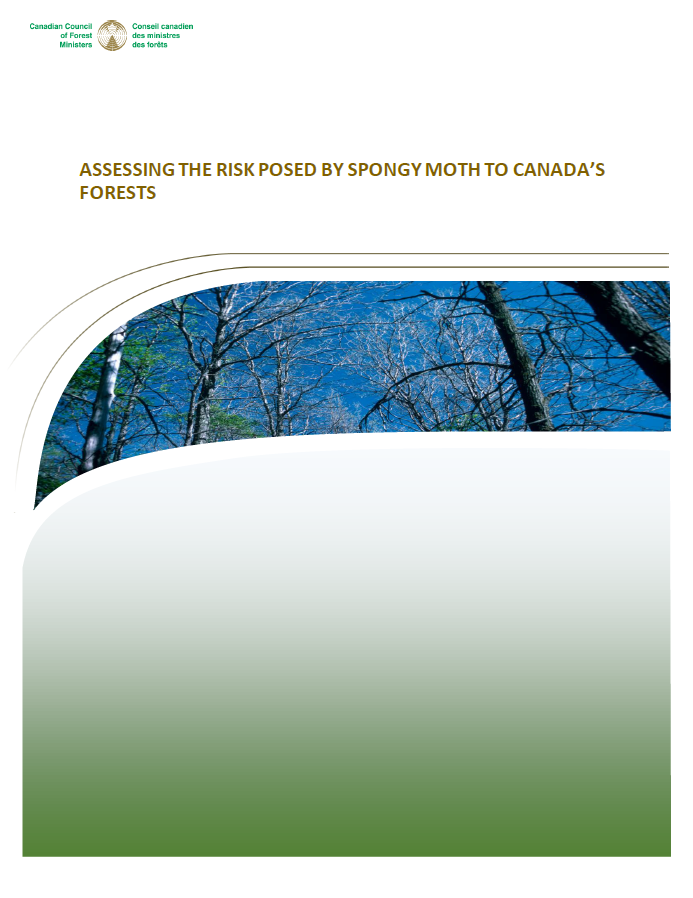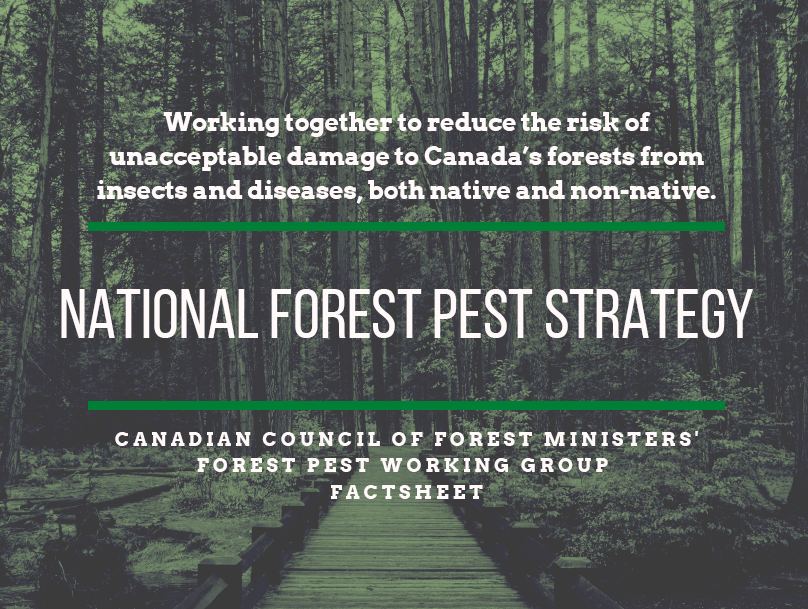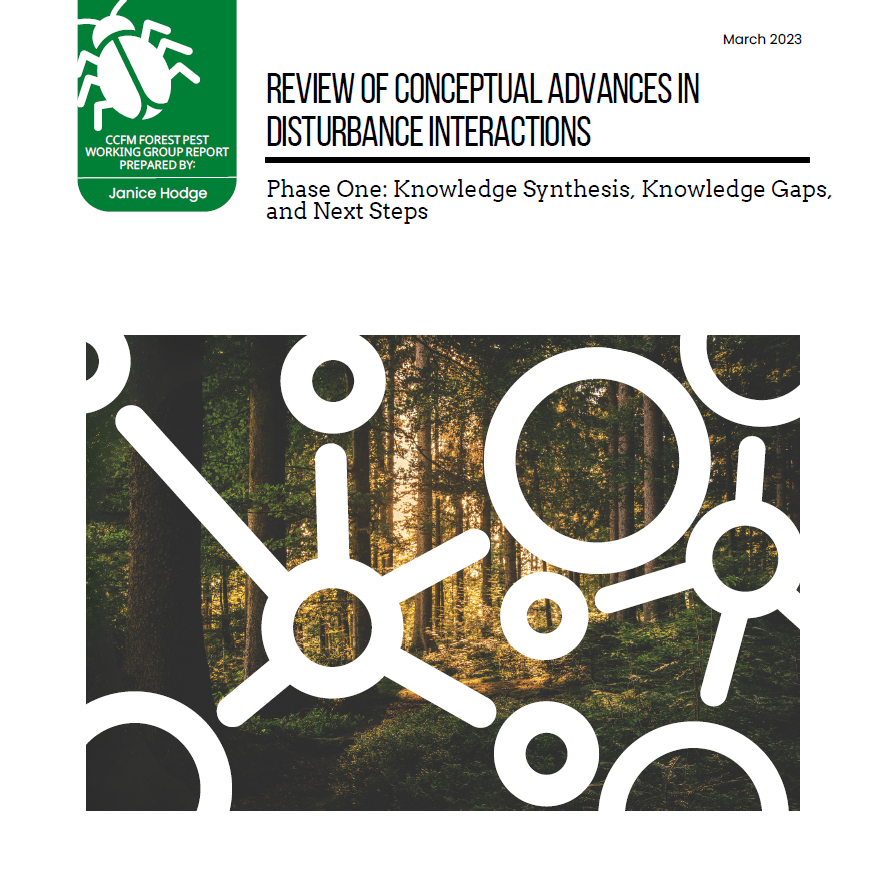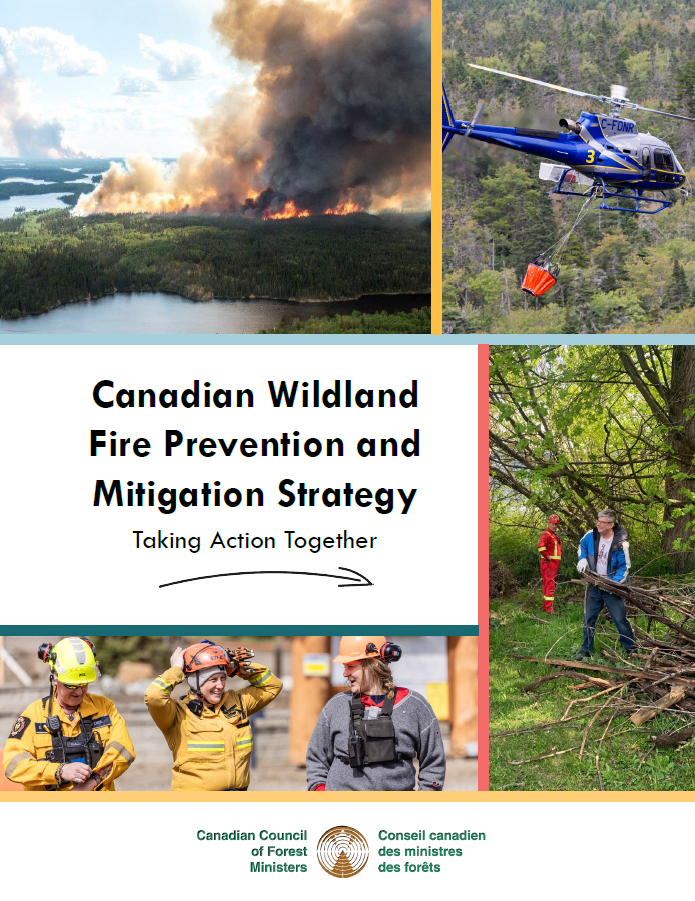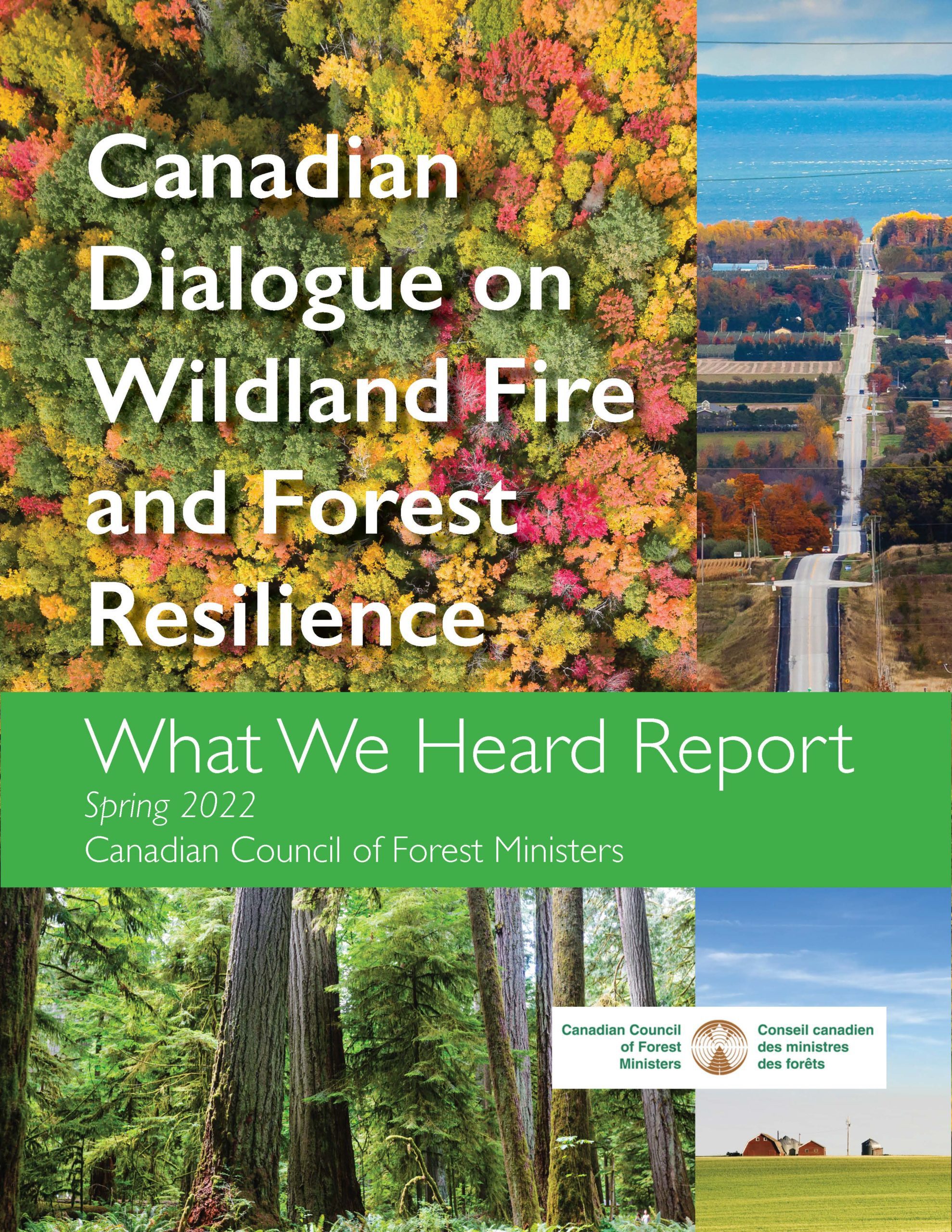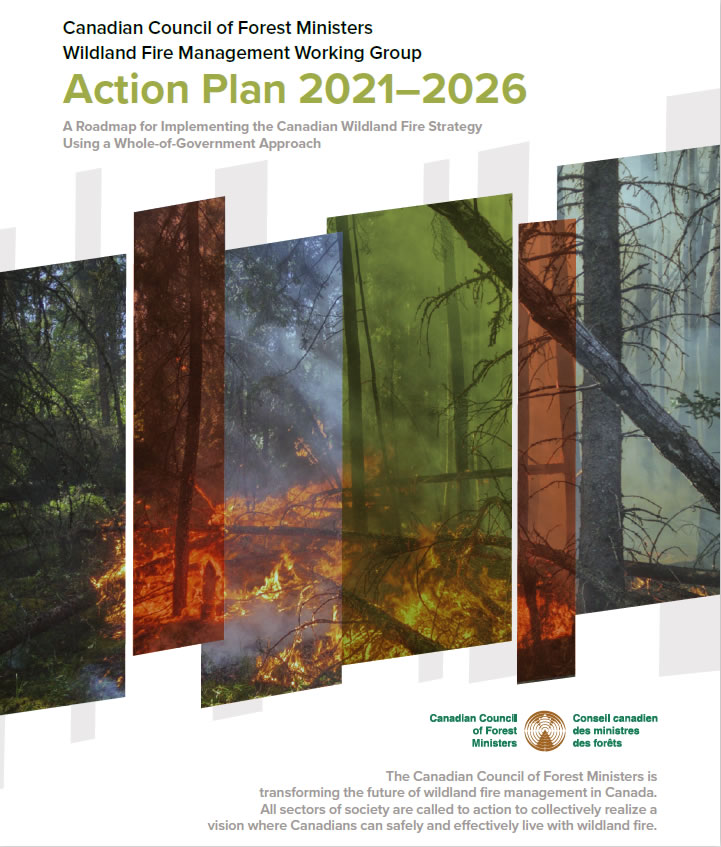CANADIAN COUNCIL OF FOREST MINISTERS RELEASE THE CANADIAN WILDLAND FIRE PREVENTION AND MITIGATION STRATEGY
Cranbrook, British Columbia, June 5, 2024 – Federal, Provincial and Territorial forest ministers are pleased to announce the Canadian Wildland Fire Prevention and Mitigation Strategy.
Severe wildland fire events in Canada are increasing in frequency, intensity, and costs. In the coming years, wildland fire risk to people, communities and infrastructure is anticipated to increase. The challenge presented by this risk impacts everyone, making it a whole of society issue requiring whole of society solutions.
Prevention and mitigation are crucial pillars in wildland fire risk reduction. Prevention decreases the chance a wildfire will occur, while mitigation reduces the impacts of wildland fires that cannot be prevented.
The Canadian Wildland Fire Prevention and Mitigation Strategy[1] is a call to action to mobilize all of society in reducing wildland fire risk, focused on inspiring collaboration and action to inform, empower and equip citizens, communities, businesses and the private sector to proactively reduce their risk from wildland fire. It provides a shared vision of wildland fire prevention and mitigation to reduce the negative impacts of wildland fire.
Prevention and mitigation work is already underway across the country. The Canadian Council of Forest Ministers will develop a collective implementation plan to help coordinate and monitor efforts and assess progress towards the goals and commitments.
“The health and resiliency of our forests has never been more important, and we know that as a country we must adapt to climate change and the growing threat of wildfire”, said Bruce Ralston, B.C. Minister of Forests. “The Canadian Wildland Fire Prevention and Mitigation Strategy is a whole-of-society call to action that ensures our forests and communities are more resilient for future generations.”
The Honourable Bruce Ralston, British Columbia
CCFM Chair and Minister of Forests
“Today’s announcement marks a significant step forward in enhancing Canada’s resilience to wildland fires, which are becoming more frequent and intense, posing greater dangers. This strategy reaffirms our commitment to keeping communities safe by our recent investments across the country, for example, through the Wildfire Resilient Futures Initiative and the Fighting and Managing Wildfires in a Changing Climate Program. Prevention and mitigation are key to this effort, reducing the numbers of wildfires that start and the damage they can cause when they do. By working together, we can inform, empower and equip Canadians to reduce their risk from wildland fires, lessening the impacts and protecting our beautiful landscapes for future generations.”
The Honourable Jonathan Wilkinson, Canada
Minister of Energy and Natural Resources
“This strategy supports people and industry to be prepared, empowered and engaged in preventing and mitigating the negative effects of wildland fires to help keep our communities safe. I’m pleased Ontario had a leadership role in the development of the actions and commitments in the strategy, and we will continue to collaborate with our partners to support this important initiative.”
The Honourable Graydon Smith, Ontario
Minister of Natural Resources and Forestry
“Wildfires are one of Nova Scotia’s top climate change risks and we saw firsthand the devastation they can cause last spring. We’re serious about promoting prevention and being prepared to fight wildfires, and our approach aligns well with this new national strategy. We look forward to continued work with our partners around the province and across the country to prevent and manage wildfires.”
The Honourable Tory Rushton, Nova Scotia
Minister of Natural Resources and Renewables
“We continue to work with our colleagues across the country and here in New Brunswick to meet the challenges associated with climate change, and the ways it impacts forests and communities. The increasing frequency and intensity of wildfires means governments, communities and individuals all play a role in increasing our vigilance. New Brunswick is building a framework for wildfire suppression, adaptation and mitigation with our partners and working with the FireSmart program to educate citizens and communities on actions to help protect their homes and other critical infrastructure from wildfire.”
The Honourable Mike Holland, New Brunswick
Minister of Natural Resources
Minister of Aboriginal Affairs
“Alberta has always understood the importance of working together across jurisdictional lines when it comes to wildfire management, which is why we’re proud to support the Canadian Wildland Fire Prevention and Mitigation Strategy. This is an important initiative that will help protect Canadians, their communities and our country’s forests from the impacts of wildfire.”
The Honourable Todd Loewen, Alberta
Minister of Forestry and Parks
About the CCFM
The CCFM was established in 1985 to provide a platform for federal, provincial and territorial governments to work together on common concerns relating the forests. The CCFM provides leadership on national and international issues and sets direction for the stewardship and sustainable management of forests across Canada (www.ccfm.org).
For more information, media please contact:
Nigel McInnis
Senior Public Affairs Officer
Government Communications and Public Engagement
Ministry of Forests
(250) 896-4320
Nigel.McInnis@gov.bc.ca
[1]Québec contributes to the work of the CCFM according to its priorities and in accordance with its jurisdiction over forest management. As Québec is already involved in forest fire prevention and mitigation on its territory, it acts as a member-observer of the CCFM’s Forest Fire Management Working Group. In this sense, Québec is not bound by the targets, objectives and commitments of the Canadian Wildland Fire Prevention and Mitigation Strategy.

